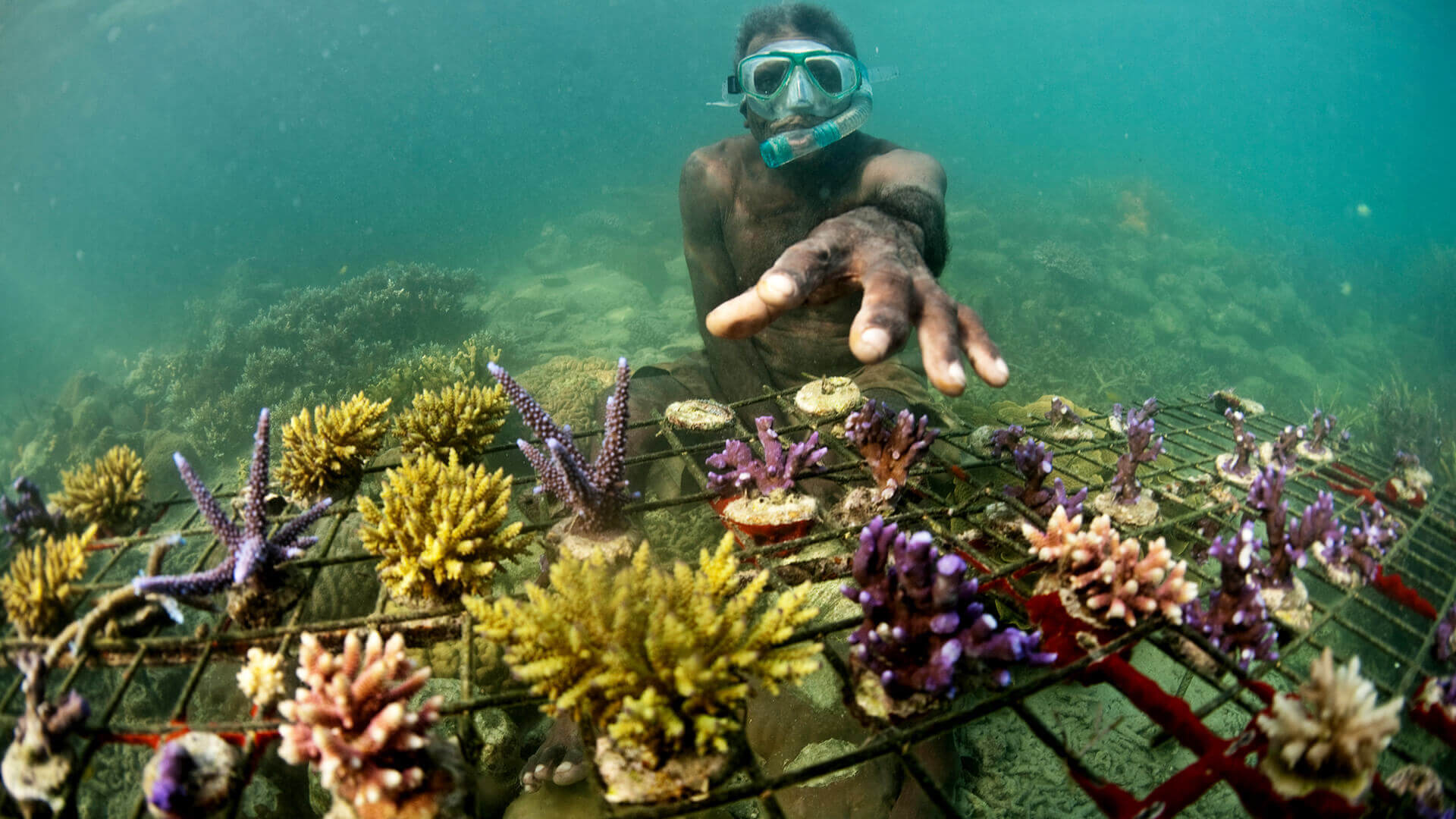The Coral Reef Rescue Initiative (CRRI) is a global programme, established to protect and regenerate the world’s rapidly degrading tropical coral reefs for the benefit of people through nature-based solutions.
We are a group of leading scientists, NGOs and influential partners, working in collaboration with governments and communities to safeguard reefs, food security and livelihoods against climate change.
We have initially identified seven countries with resilient reefs, chosen for their potential to survive in a warming ocean and withstand the threats of climate change. This initiative offers essential support to communities on the frontline in low- and middle-income countries where these reefs can be found.
In all seven countries, our partners have a longstanding relationship with local communities and different levels of government.











